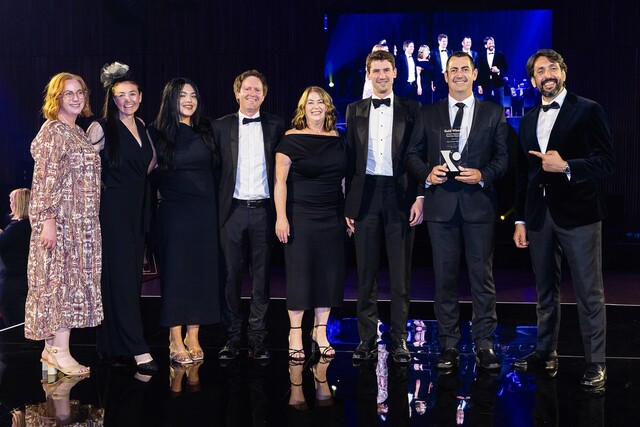Prime Minister Morrison’s $1.5 billion Modern Manufacturing Strategy announced on 1 October is welcomed, not for the dollar amount (miniscule in the context of the submarine project), but for the rhetoric that came with it.
Morrison talked convincingly about the need to build manufacturing competitiveness, scale and resilience. Perhaps I’m getting soft, but he was convincing. Keating, Gillard or Turnbull never spoke with such passion or assuredness. Sure he was reading from the National Press Club’s teleprompter, but after two decades of policy inaction it was music to my ears.
The gist of his announcement was the targeting of six priority areas viz. resources technology and minerals processing, recycling and new energy, medical products, food processing, space. He spoke about investment in cross-cutting technologies and processes that enhance production efficiency e.g. automation, digitisation, data analytics, artificial intelligence. And he waxed lyrical about road maps to maximise our competitive advantage in each of these sectors.
But these six priority areas are not new – they’re basically the Industry Growth Centres announced 6-7 years ago. Why didn’t the feds put on their thinking caps? Some obvious additional areas are agricultural machinery, transport and logistics, quality furniture, metal fabrication and tropical medicines – we have the opportunity to build even stronger competitive advantages in these fields.
Moreover, the main program in this Strategy, a $1.3 billion Modern Manufacturing Initiative, is standard stuff about the Government co-investing in projects that help businesses to scale-up and create jobs, and to work with industry and research institutions to commercialise great ideas with a global outlook.
The glaring opportunity for the feds – if they really wanted to revisit the art of ‘making things’ – would have been to change its work practices. Federal agencies must be more open to working up ideas from the private sector. Departments are unwilling to provide names and contact details of officials. Even at the state level, I had an official saying last month that he couldn’t, for ‘probity reasons’, give me any contacts to flesh some ideas about rejuvenating a niche area of manufacturing. Sheesh!
A second step would be to reorganise the federal Industry Department. It has lost its mojo because it’s too occupied with grants administration and generic policy issues. It need to beef up its industry knowledge so that it can engage with businesses in solving problems and helping chase commercial opportunities. Remove the Iron Curtain.
Opportunities for local government
If your council is interested in helping to revitalise the manufacturing sector, I would suggest two areas.
Government purchasing
Local government has significant purchasing power in some segments e.g. road-making equipment, transport machinery, mowers, gardening equipment, waste recycling equipment, furniture, building materials, chemicals, playground equipment. Much of these products are imported.
The Council mindset is probably that this issue is outside their area of competency.
But this is wrong, because you could change to local product at the stroke of a pen.
An example is plastic decking, where the Chinese product is the market leader – it’s quite cheap but it’s mostly rubbish. Likewise, cheap imported mowing equipment – it just does not last, and buying replacement parts is an excruciating process. Surely the solution is to (a) buy local products, where available, backed up with a Council decision endorsing the cost-effectiveness principle, and/or (b) collaborating with other councils and the state government to encourage local manufacturers to come forward with competitive quotes in particular fields.
Global Supply Chains
The global economy is fracturing, and we must urgently seek new supply chain and trade and investment partners in places like India, Malaysia, Singapore, Vietnam, Japan and South Korea. However, it requires not only company-to-company collaboration.
In this regard ‘reinforcing business circles’ are also important. Overseas businesses want to know that the local companies share workloads and think locally, and that local councils, universities and chambers of commerce are proactive and progressive. Geelong and Newcastle have been strong in this respect.
We’re currently talking to the feds about identifying regions in Asia that might be conducive to supply chain development with our regions. Please email me if you have an interest.
COVID-19 challenge
Credit where it’s due. The federal ministerial troika is performing well.
PM Morrison has been a constant source of measured reasoning during the
COVID-19 business. Sure, he lapses into marketing hype from time to time, but he does have a logical way of explaining things for those not immersed in politics 24/7. Moreover, I figure he does understand manufacturing, and his economic geography qualifications provide some confidence.
And our cherubic Treasurer Josh Frydenberg has grown into the job. He’s more relaxed and confident. Having shed the fixation of achieving a Budget surplus seems to have put him in better place.
Meanwhile the third leg of the troika, Health Minister, Greg Hunt gets on with his press conferences and the detail. He reminds me of Bruce McAvaney and his penchant for sports trivia.
Lastly, Morrison is keeping his poor performing Ministers out of the limelight, which is gratifying.
Rod Brown is a Canberra-based consultant and lobbyist specialising in industry/regional development, investment attraction and clusters, and accessing federal grants. He also runs the Cockatoo Network.
Phone: (02) 6231 7261 or 0412 922 559
Email: apdcockatoo@iprimus.com.au
















